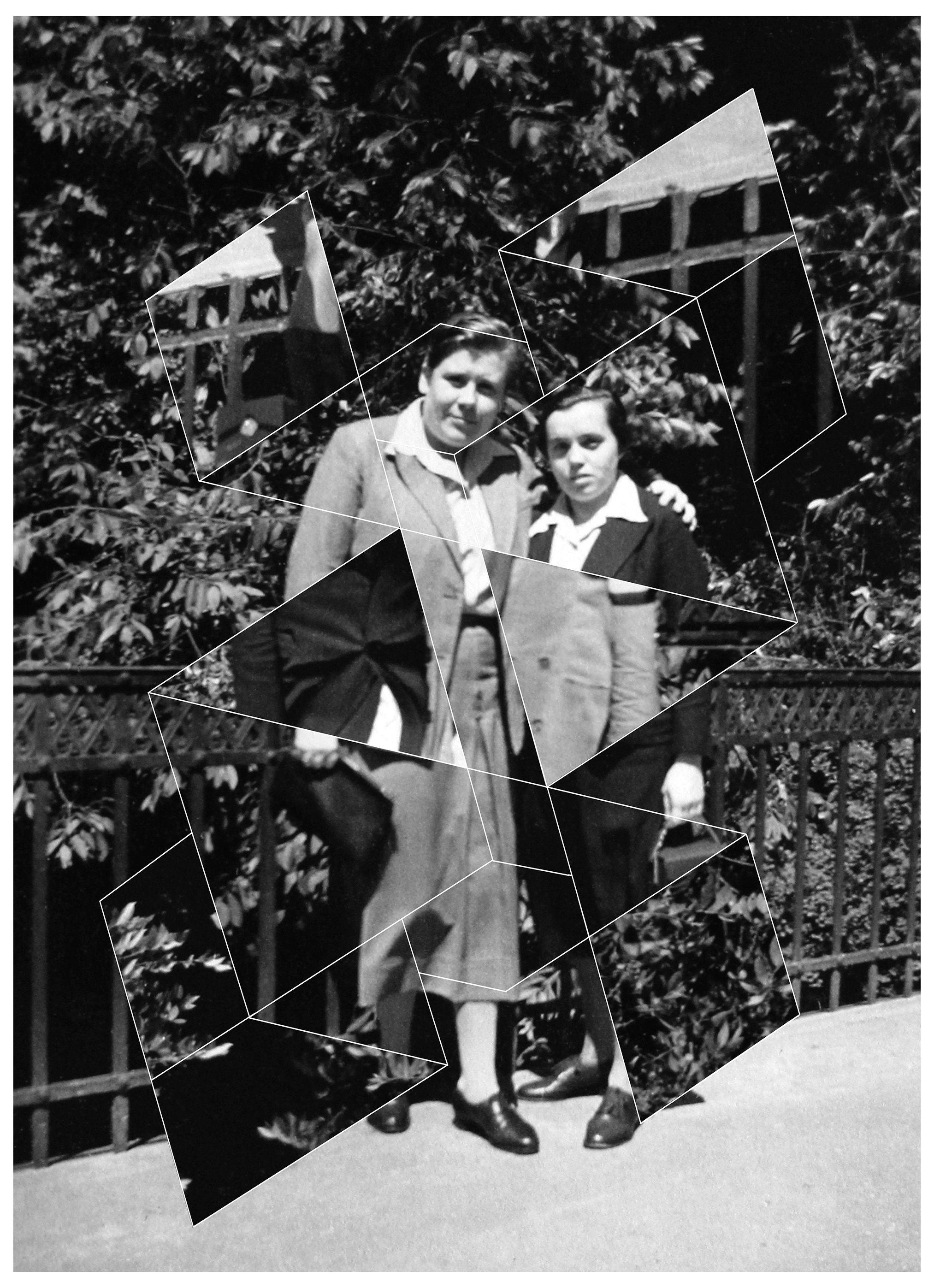
Hilde Radusch (1903-1994) was a German political activist deeply involved with the anti-fascist resistance. Her father — a postal worker who was killed in World War I — had a large influence on her spirit of independence and determination. Once she turned eighteen, Radusch moved to Berlin at the height of the Weimar Republic. She joined the Young Communists and took a lead in the “Red Women’s and Girls’ Association.” She wrote articles for their newspaper. In 1924, she served as a Communist Party city councillor in Berlin, but was later taken off the list of candidates because of her refusal to hide that she was a lesbian. She traveled to Moscow to learn about the Soviet postal service, but soon after the Nazi Party came to power she returned to Germany. Shortly arrested for her connection to the Communist Party and other “resistance” activities, she was classified for the authorities as a “political” and placed under Gestapo surveillance.
In 1939 she met her life partner, Else “Eddy” Klopsch. They opened a small shop, a meal service in Berlin’s Scheunen quarter which they called a restaurant under Klopsches father’s name. Their store, like many others; had been left behind fully furnished by their former jewish owner. Radusch and Klopsch were required by law to put up a “Forbidden to Jews” sign in the shop window, but they made sure to always cover the sign with the daily menu. The shop became a refuge for women from the underground Communist Party, recently released or escaped from detention. They would nurse people back to health, hiding them and supporting their escape from Germany.
Kadusch — being on a list of political opponents — escaped her imminent arrest by “Operation Gitter” due to a friend of Eddy’s in the German police. For the remainder of the war, they had to hide on a small plot of land in the countryside, nearly starving. After the war, they joined the Department of “Victims of Fascism”. Radusch worked on the reconstruction and was part of “child rescue” missions. After seeing the Red Army entering Berlin, Kadusch started to doubt her involvement with the Communists. She left the Communist Party, retired and joined the Social Democratic Party. Eddy ran a junk shop that financed their lives.
When Eddy died in 1960 of cancer, Radusch was hit hard. But in the 1970s, she joined a new wave of feminism and co-founded L74, a West Berlin group of elderly lesbians. She became the editor of “Our Little Newspaper”, the first lesbian newspaper after World War II, contributing poetry and prose. She also co-founded the “Women’s Research, Education and Information Centre” a vibrant archive documenting women’s history and gender identities which still existing today. In 2012, eighteen years after Radusch’s death the Berlin city government dedicated a monument to her, commemorating her political resistance and public service efforts during her lifetime. The three tablets are the first public memorial in Berlin commemorating a lesbian victim of Nazi persecution
SOURCES
https://en.wikipedia.org/wiki/Hilde_Radusch
http://www.lesbengeschichte.de/Pdfs/pdfs_bio_skizzen_englisch/radusch_schoppmann_engl.pdf